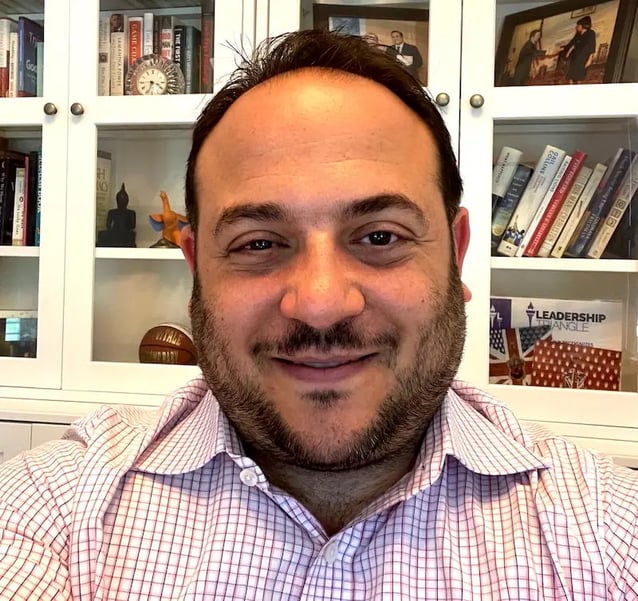Justin Sosne, Head of the UK Government’s North Carolina Office
In our regular #MyFirstMcJob series, outstanding business people remember their first crappy jobs

Hi, Justin! Who are you and what do you do?
I am the head of the UK Government Foreign, Commonwealth and Development Office, in Raleigh, North Carolina. My job is to manage the UK’s political and commercial relationship with the State of North Carolina, which has a population of almost 11 million people and an economy roughly the size of Sweden’s.
What was your #MyFirstMcJob?
Working at a local store of the national chain Dick’s Sporting Goods here in Raleigh.
How did you get the job?
I just walked in the front door! It was a summer opportunity between years of university, age 18 or 19. I needed to get some real world experience, so just went in and asked for an application.
What did you have to do?
Sell everything from treadmills to shoes to tennis rackets. Some of the work was quite physically gruelling. When folks bought a treadmill, those things weigh 400/500 pounds, which is a lot! We had to get them from the storeroom to their car using the dolly. We also had tent sales where they pitch a tent in the car park and you have to sit outside all day in stifling heat and humidity in order to sell things. So that was pretty miserable.
How long did you work there?
About two and a half months.
What were the perks of the job?
A modest discount on goods sold at the store, and a free polo shirt – nothing major!
What’s the most memorable thing that happened?
I ran into a Brit who was coming in to buy a football – so a soccer ball. I was trying to appear very cultured, age 18 or 19. I recognised his accent and I said: “Who's your favourite football team?” – meaning soccer – and he proceeded to say the Green Bay Packers, an American football team. So he was clearly trying to appear cultured as well.
What skills did you learn that you still use today?
I was at a well-regarded university – the University of North Carolina at Chapel Hill – but it quickly became abundantly clear that no one cared. It was far more: can you do the job? Are you doing it well? So it taught me to be humble. I forgot to charge a customer who had come in to have his tennis racket re-strung, and was subsequently chastised by my boss for essentially giving something away for free. Ultimately my boss was understanding, which taught me about integrity and owning up when you make a mistake. Trying to sell $400, $500 treadmills or tennis rackets meant I had to read the customer and come up with a compelling narrative on my feet. Those skills are still relevant to my work today, even though I’m now selling the UK instead of sporting goods!
Why is alumni important?
Relationships make the world turn. I'm not still in touch with anyone from that particular role, but I'm still in touch with many folks from my other professional roles. When I worked at the US State Department, my very senior boss said: “If you learn one thing from me, it’s to treat people well, because you're going to run into the same people over and over.” It’s just the right thing to do, but it’s also the most important way to develop your career. Any time you have a shared experience with someone, it's a way to relate to them. Alumni are really important. Work experiences are intense. You spend a lot of time with people in a job, they become a part of your narrative and an important part of who you are, so why wouldn’t you want to keep in touch with them?
What would happen if you went back and did a shift at Dick’s Sporting Goods?
I’d worry, because I'm no longer 18 and my back isn't what it used to be! I imagine I would need to avail myself of the company’s workers' compensation policy before too long!
What advice would you give your younger self?
I think it would be: “You can do it!” I've always had some vision that I could make an impact, but when you’re young, it's difficult to understand how that translates into practice. I would tell myself to persevere, work hard, be humble and that luck is something that you can create to some degree, but if you keep at it and you're determined, inevitably you're going to achieve a measure of success.
https://www.linkedin.com/in/justin5804/
https://www.gov.uk/government/people/justin-sosne
https://www.gov.uk/government/organisations/foreign-commonwealth-development-office

